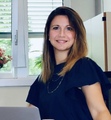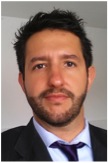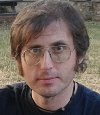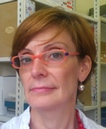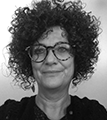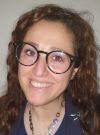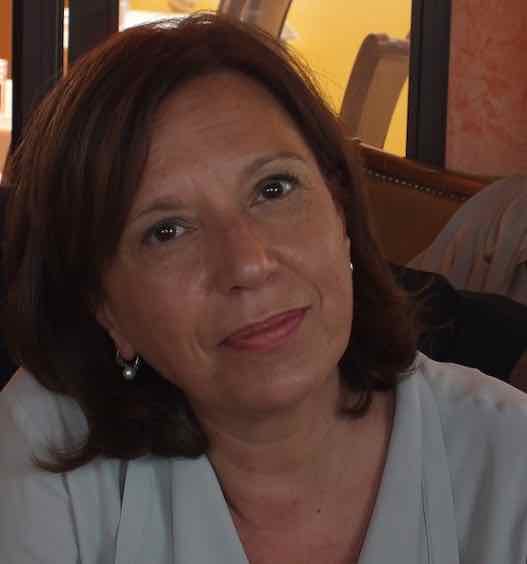Studying at the University of Verona
Academic calendar
The academic calendar shows the deadlines and scheduled events that are relevant to students, teaching and technical-administrative staff of the University. Public holidays and University closures are also indicated. The academic year normally begins on 1 October each year and ends on 30 September of the following year.
Course calendar
The Academic Calendar sets out the degree programme lecture and exam timetables, as well as the relevant university closure dates..
| Period | From | To |
|---|---|---|
| MED ING annuale | Oct 2, 2024 | Sep 30, 2025 |
| MED ING 1° semestre | Oct 2, 2024 | Dec 20, 2024 |
| MED ING 2° semestre | Jan 2, 2025 | Sep 30, 2025 |
| Period | From | To |
|---|---|---|
| Tutti i Santi | Nov 1, 2024 | Nov 1, 2024 |
Exam calendar
To view all the exam sessions available, please use the Exam dashboard on ESSE3. If you forgot your login details or have problems logging in, please contact the relevant IT HelpDesk, or check the login details recovery web page.
Should you have any doubts or questions, please check the Enrollment FAQs
Academic staff
Study Plan
The Study Plan includes all modules, teaching and learning activities that each student will need to undertake during their time at the University.
Please select your Study Plan based on your enrollment year.
1° Year
| Modules | Credits | TAF | SSD |
|---|
2° Year It will be activated in the A.Y. 2025/2026
| Modules | Credits | TAF | SSD |
|---|
3° Year It will be activated in the A.Y. 2026/2027
| Modules | Credits | TAF | SSD |
|---|
4° Year It will be activated in the A.Y. 2027/2028
| Modules | Credits | TAF | SSD |
|---|
5° Year It will be activated in the A.Y. 2028/2029
| Modules | Credits | TAF | SSD |
|---|
6° Year It will be activated in the A.Y. 2029/2030
| Modules | Credits | TAF | SSD |
|---|
| Modules | Credits | TAF | SSD |
|---|
| Modules | Credits | TAF | SSD |
|---|
| Modules | Credits | TAF | SSD |
|---|
| Modules | Credits | TAF | SSD |
|---|
| Modules | Credits | TAF | SSD |
|---|
| Modules | Credits | TAF | SSD |
|---|
Legend | Type of training activity (TTA)
TAF (Type of Educational Activity) All courses and activities are classified into different types of educational activities, indicated by a letter.
Medical clinic, gerontology and medical treatment (It will be activated in the A.Y. 2029/2030)
Teaching code
4S01141
Credits
10
Scientific Disciplinary Sector (SSD)
-
Learning objectives
Objectives of the integrated course are:
- to know how to integrate symptoms, signs, and structural and functional alterations in the comprehensive assessment of a person's health status
- To know how to formulate differential diagnostic hypotheses.
- To analyze and solve clinical problems of the internist and geriatric type according to a method that evaluates the relationships between benefits, complexity conditions, risks and costs.
- Set up a reasoned therapeutic program on the acquired notions of pathophysiology and pharmacology in the light of recommendations shared by scientific societies at the international level and regulatory bodies (guidelines).
- Know how to communicate properly with the patient, his or her relatives and know how to properly set up working relationships with colleagues and other health professionals, primarily nurses, based on the code of ethics and respect for each other's roles and competencies.
Clinical medicine, gerontology and medical treatment module
The teaching program aims to deepen physiopathology, clinical and health care priority issues selected for epidemiological relevance and exemplarity. The main clinical syndromes and organ diseases presenting are considered, both through the presentation of examples as clinical cases and through that rational analysis of problems and therapy modalities. Concerning geriatric syndromes are considered in particular the problems related to clinical instability, especially in chronic illness/disability, and clinical alterations resulting from the aging population and the rise of chronic problems degenerative diseases. The overall approach focuses on the recognition and management of current and potential problems within a framework of continuity in different contexts and on the promotion and development of self-care skills and abilities. At the end of the course the student should reach adequate competence concerning the pathophysiology and treatment of geriatric syndromes, the major organ disease conditions and have a rational approach to medical therapy and the use of medications. Professional objectives: to be able to interpret symptoms, clinical signs, structural and functional alterations for a global evaluation of personal health condition. To express differential diagnostic hypotheses. To analyze and solve clinical problems of internal medicine with a methodology taking in to account risk-benefits ratio and cost-benefits ratio. To be able of formulate a rational therapeutic programme based on pathophysiological and pharmacological knowledge. To behave kindly and to communicate correctly with patients and their relatives, with colleagues and other sanitary operators on the basis of professional code of conduct and respecting mutual functions.
Statistics module
The module aims to:
- briefly resume the elementary principles of research in quantitative medicine already covered in depth in the first year.
- apply their medical knowledge to critically judge the application of different study designs to different clinical settings.
- use software (or simple calculation programs) to calculate the most common statistical indices, also in function of data analysis for the final dissertation.
INTERACTIONS WITH OTHER HEALTH PROFESSIONALS MODULE
The course introduces students to interprofessional collaboration as a critical point for a good health team.
Interprofessional interactions influence the clinical outcomes.
This course will provide insight into the interprofessional approach as, nowadays, more than ever, dealing with the health needs of gerontological patients requires a multidimensional approach through the adoption of cooperation models, most of all in community care.
A deeper explanation of the strategies to facilitate the integration between health practitioners (e.g., pre-, conference, and post-conference) will be provided.
Practical Teaching Module of Internal Medicine
At the end of the module, the student, through small group attendance in the Internal Medicine departments, will be able to: conduct a complete, accurate, and differentiated medical history according to the type of patient; identify signs and symptoms of the main internal and geriatric pathologies; request the most relevant diagnostic tests for diagnosis; establish appropriate medical therapy in relation to different pathologies and patient characteristics; plan and manage patient follow-up."
Examination Methods
CLINICAL MEDICINE, GERIATRICS AND MEDICAL THERAPY Oral and unique. In principle, the student will be questioned starting with an actual clinical case to assess his or her ability to arrive at the correct diagnosis and set appropriate therapy. In addition, questions will be asked that explore the critical knowledge and skills the student has arrived at. INTERACTIONS WITH OTHER HEALTH PROFESSIONALS MODULE The final examination will be a written examination, with open-ended questions.
Evaluation criteria
The final test ascertains the level of knowledge of the contents in the syllabus and the medical skills achieved starting from the critical analysis of a real clinical case. The final grade is considered positive for scores equal to or greater than 18/30.
Free choice courses
Modules not yet included
Career prospects
Module/Programme news
News for students
There you will find information, resources and services useful during your time at the University (Student’s exam record, your study plan on ESSE3, Distance Learning courses, university email account, office forms, administrative procedures, etc.). You can log into MyUnivr with your GIA login details: only in this way will you be able to receive notification of all the notices from your teachers and your secretariat via email and soon also via the Univr app.
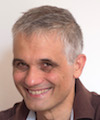
 giuseppe.bertini@univr.it
giuseppe.bertini@univr.it
 045-802-7682
045-802-7682
